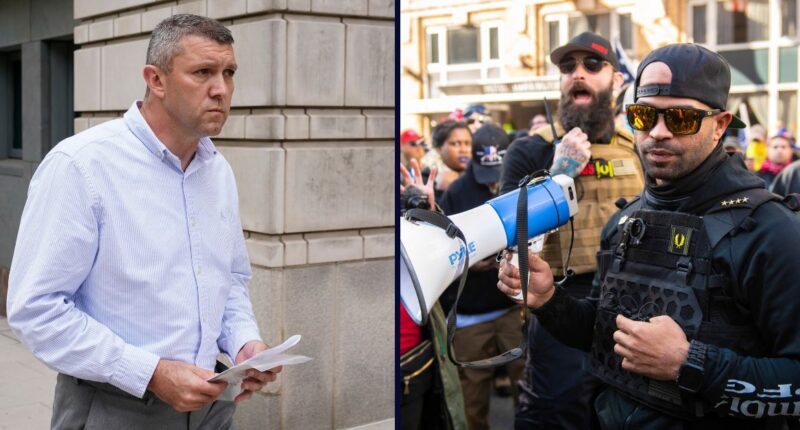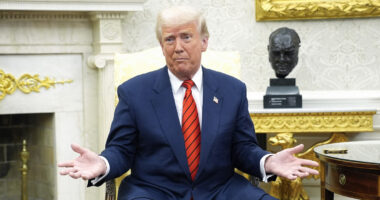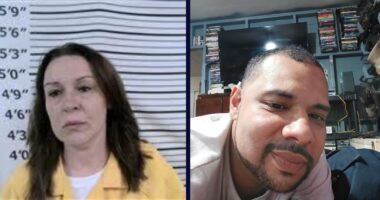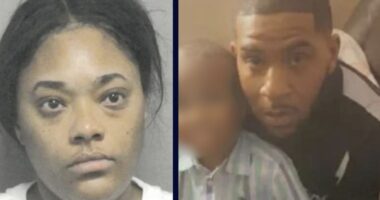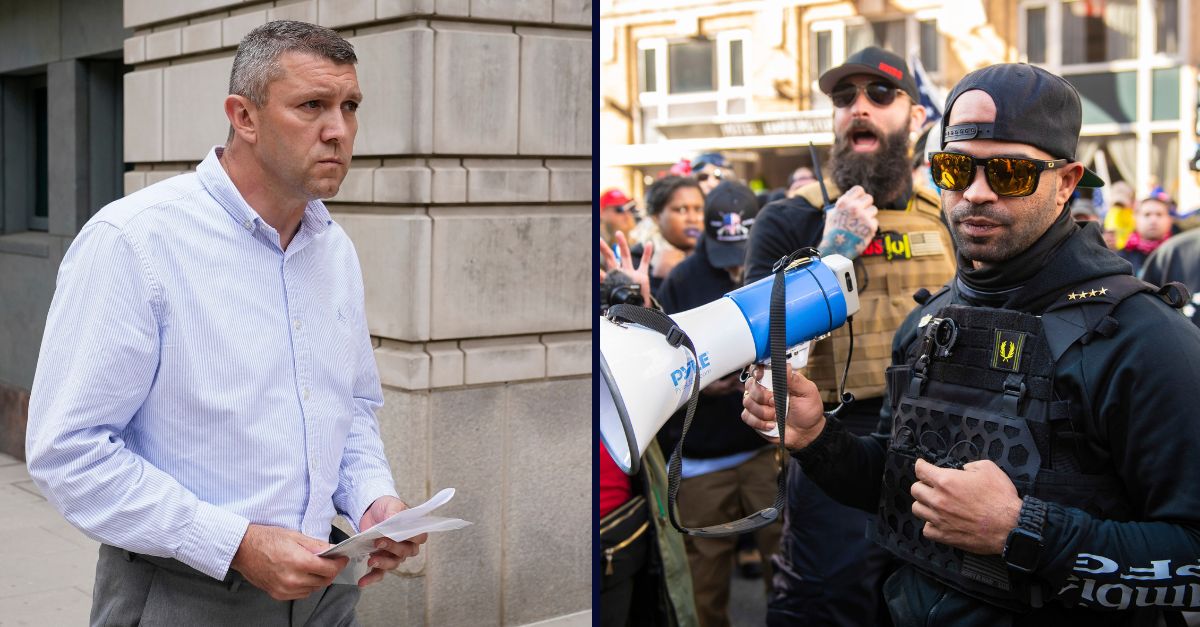
Washington Metropolitan Police Department Lt. Shane Lamond pleaded not guilty to charges of obstruction of justice and other offenses in federal court on May 19, 2023. On the same day, in Washington D.C., Enrique Tarrio and the Proud Boys were seen demonstrating near Freedom Plaza during the Million Maga March protest related to the election results that took place on November 14, 2020.
An imprisoned former leader of the Proud Boys extremist group clashed with a prosecutor and judge and refused to answer questions while testifying at the trial of a police officer accused of leaking information to him about a warrant for his arrest.
Henry “Enrique” Tarrio testified on Thursday as a defense witness in the bench trial of retired Metropolitan Police Department Lt. Shane Lamond in front of U.S. District Judge Amy Berman Jackson, a Barack Obama appointee. Lamond is accused of working as a “double agent” ahead of the Jan. 6 Capitol riot and tipping off Tarrio about his impending arrest for burning a Black Lives Matter flag in front of an historically Black Washington, D.C., church.
Lamond is charged with obstruction of justice and making false statements to police about his conversations with Tarrio, who is serving a 22-year prison sentence for his role in organizing the riot, the longest sentence of any Jan. 6 defendant.
Tarrio complained the prosecutor, Rebecca Ross, shouldn’t have “free reign” to ask him about Jan. 6, The Associated Press reported.
“This case is not a Jan. 6 case,” he told the judge, arguing he didn’t “completely” waive his Fifth Amendment rights, according to the wire service.
“There is not a half of a Fifth Amendment privilege,” Jackson responded, according to the AP.
When Tarrio told her, “We’ll agree to disagree,” the judge chuckled and replied, “Well, I’ll just say, ‘You’re not in charge.””
Jackson told him he needed to answer all the questions.
“You don’t get to pick and choose,” she told Tarrio after he initially refused to answer whether members of the Proud Boys were at the Capitol that day.
Law&Crime has previously reported about Lamond’s trial.
“Lamond leaked sensitive police information to a criminal suspect, and lied about it to investigators,” Assistant U.S. Attorney Joshua Rothstein told Berman at the start of the trial, according to The Washington Post. “The evidence will show that the defendant was a Proud Boys sympathizer. The defendant became a double agent.”
According to the March 2023 indictment, Lamond was the head of MPD’s intelligence branch that monitored upcoming protests and rallies in Washington, D.C., when he and Tarrio started communicating regularly using the encrypted messaging app Telegram.
After Joe Biden was declared the winner of the 2020 presidential election, Lamond allegedly sent a text message to Tarrio that said, “Hey brother, sad, sad news today. You guys planning anything?”
Lamond allegedly tipped Tarrio off that law enforcement had been hearing chatter of Proud Boys saying they were “mobilizing” and planning on “taking back the country.” Lamond also allegedly kept Tarrio apprised of cops possibly shutting down a bar that was a Proud Boys hangout.
Tarrio allegedly spoke with fellow Proud Boys members about his “contact” with MPD and is said to have told Tarrio that cops were trying to obtain a warrant for his arrest.
On Jan. 4, 2021, Tarrio was flying from Florida to Washington, D.C., when Lamond allegedly changed his settings on Telegram so that messages would delete 10 seconds after being opened. Prosecutors believe Lamond told the Proud Boys leader that there had been a warrant signed for his arrest and that he would be taken into custody once in the nation’s capital. Lamond continued messaging Tarrio before and after the Jan. 6 riots about the police investigation, prosecutors said.
Lamond allegedly told Tarrio, “Of course I can’t say it officially, but personally I support you all and don’t want to see your group’s reputation dragged through the mud.”
The U.S. Attorney’s Office began investigating Lamond’s association with the Proud Boys in June 2021. Prosecutors claim Lamond lied about how he communicated with Tarrio and denied feeding Tarrio confidential information about the banner burning investigation.
During Monday’s opening statements, Lamond’s attorney Ana Jara said describing her client as a Proud Boys sympathizer is “simply not true” and that prosecutors have “cherry-picked” messages between him and Tarrio. Lamond was simply working a source as a law enforcement officer, she said.
“Context matters, especially in conversations,” Jara said, according to the AP.
